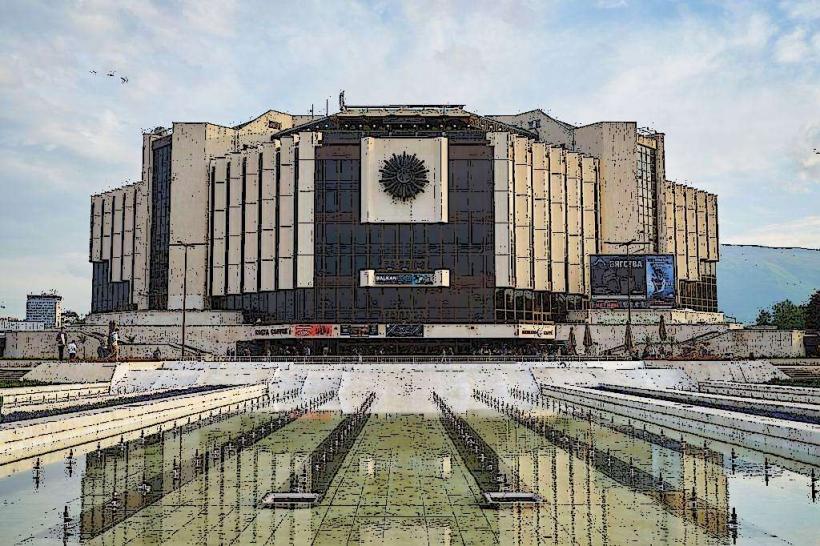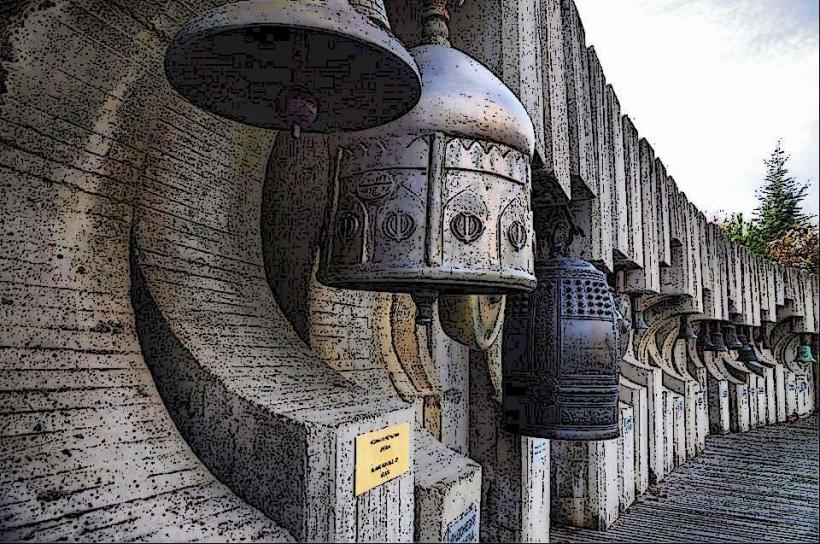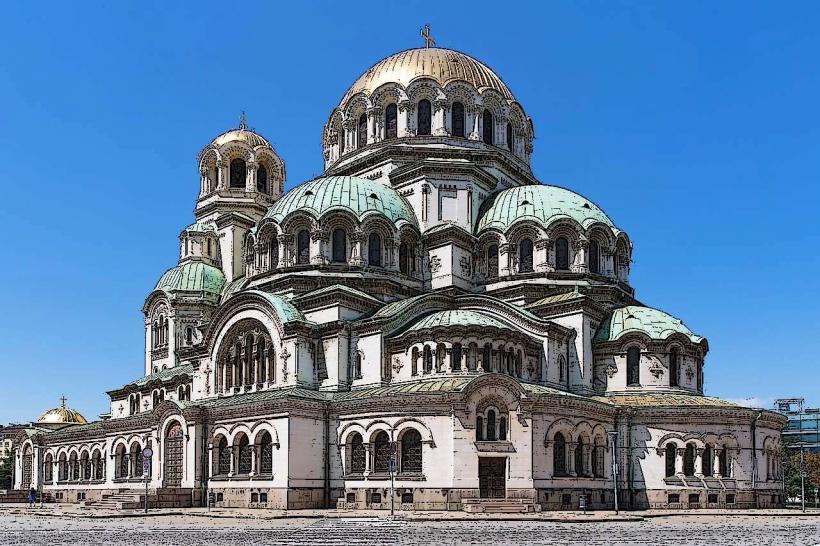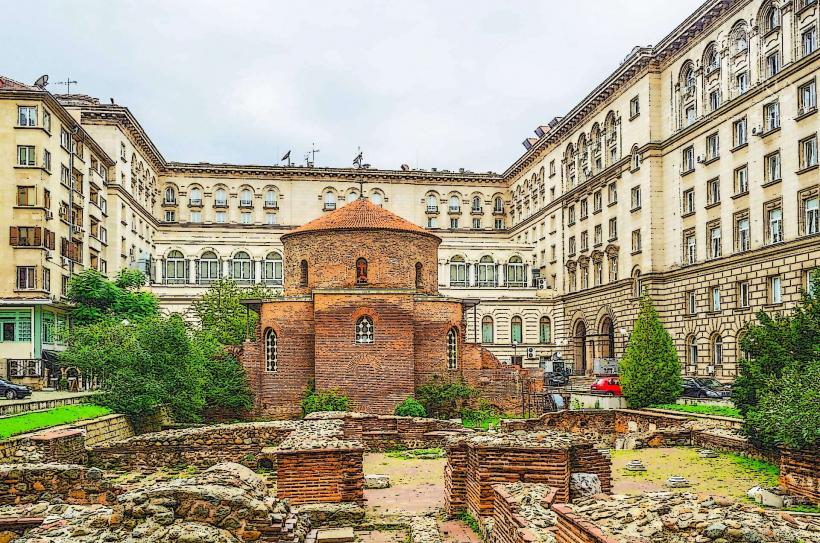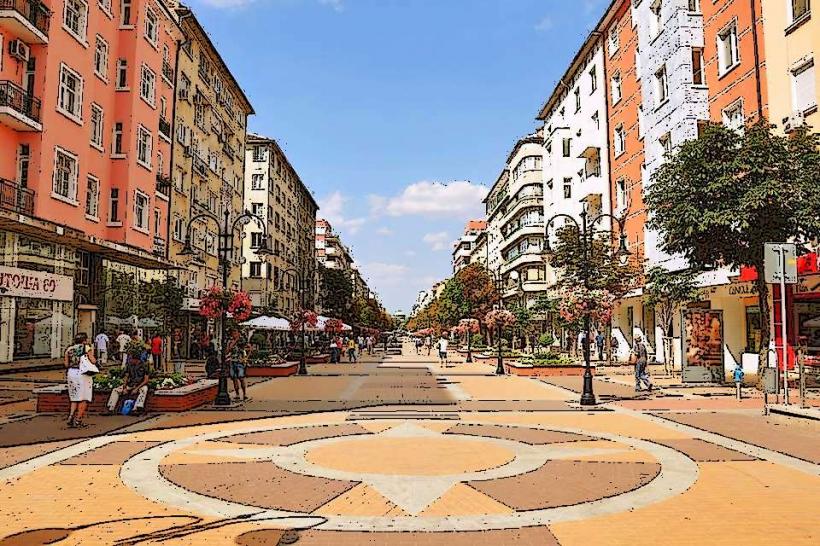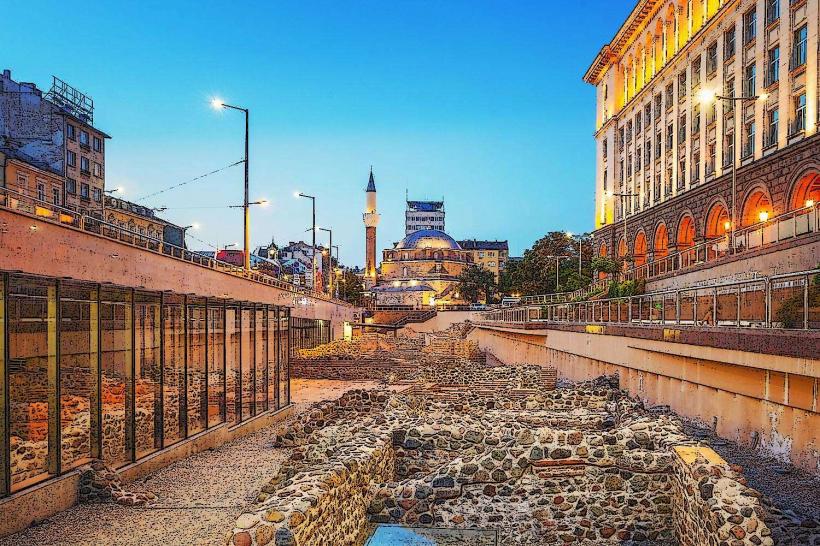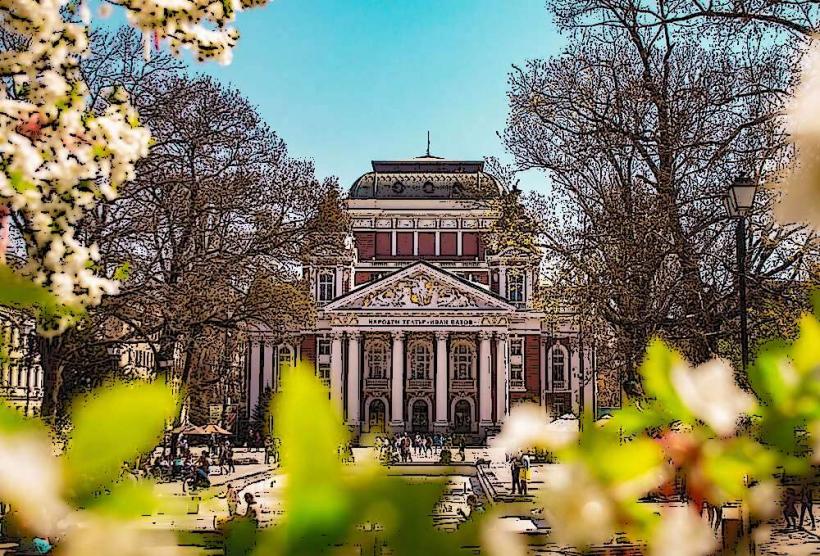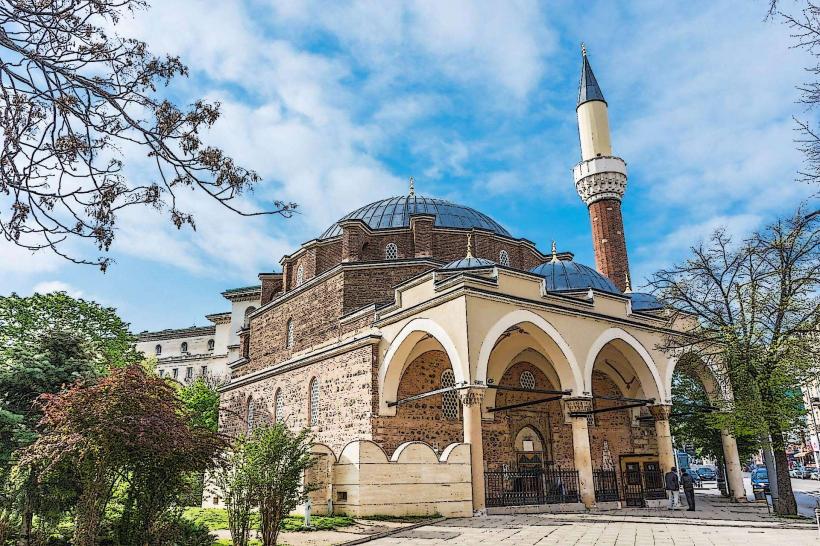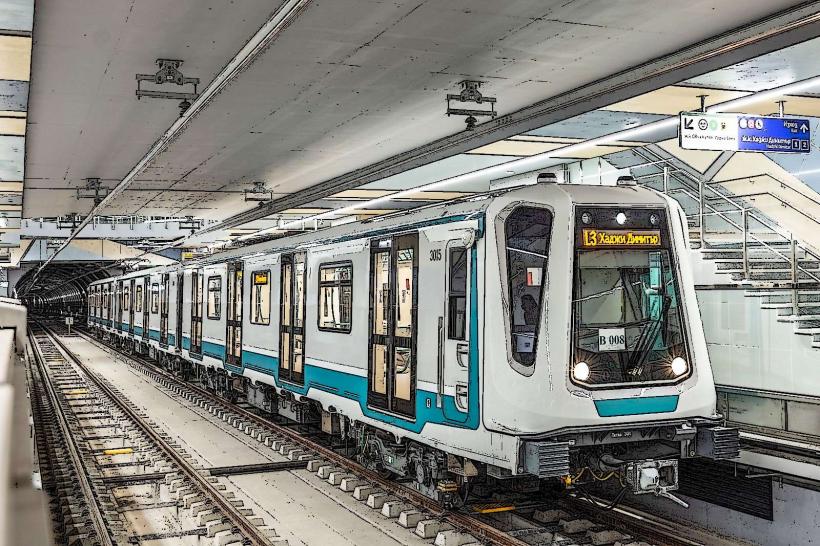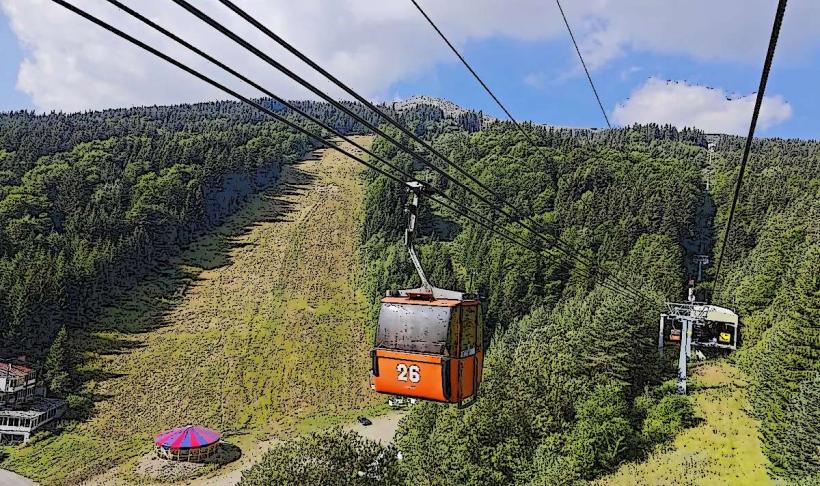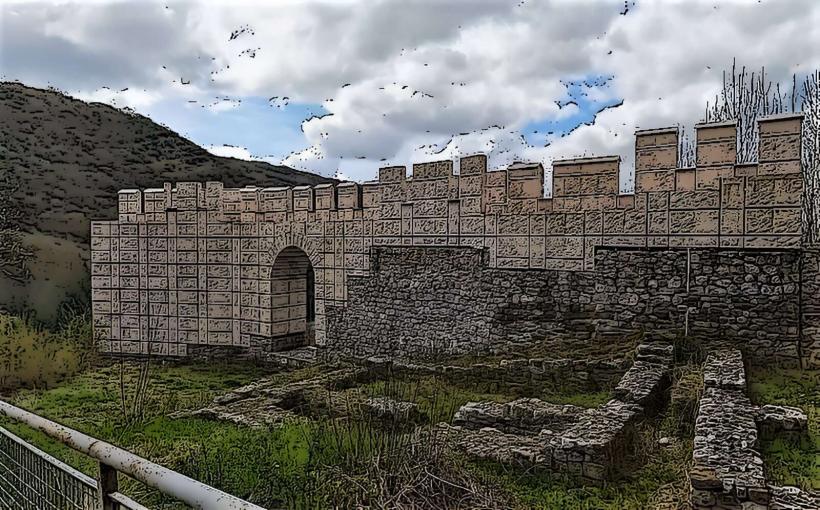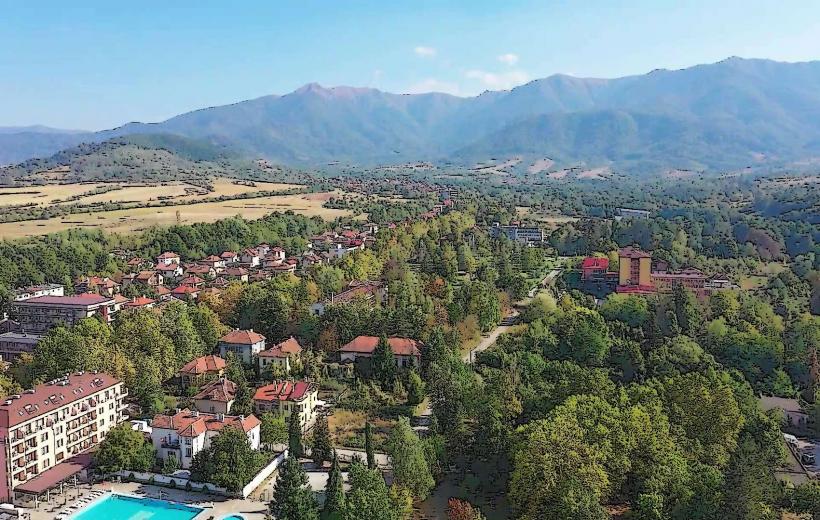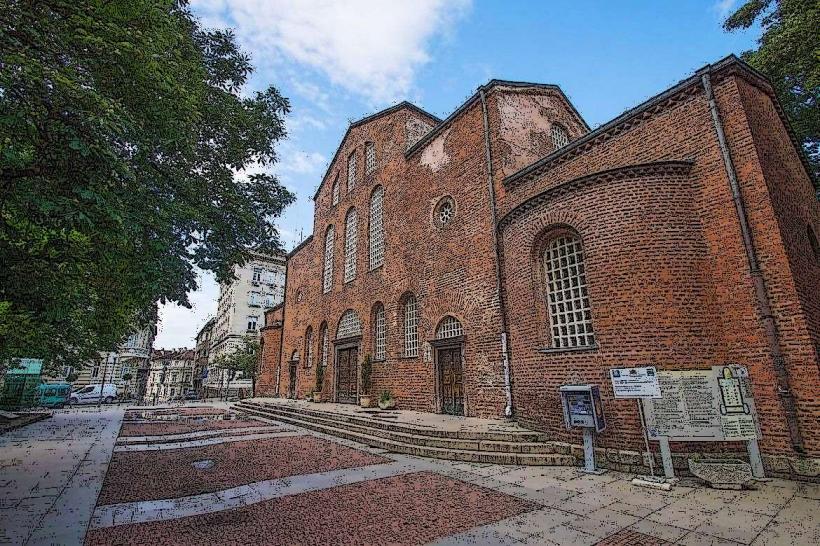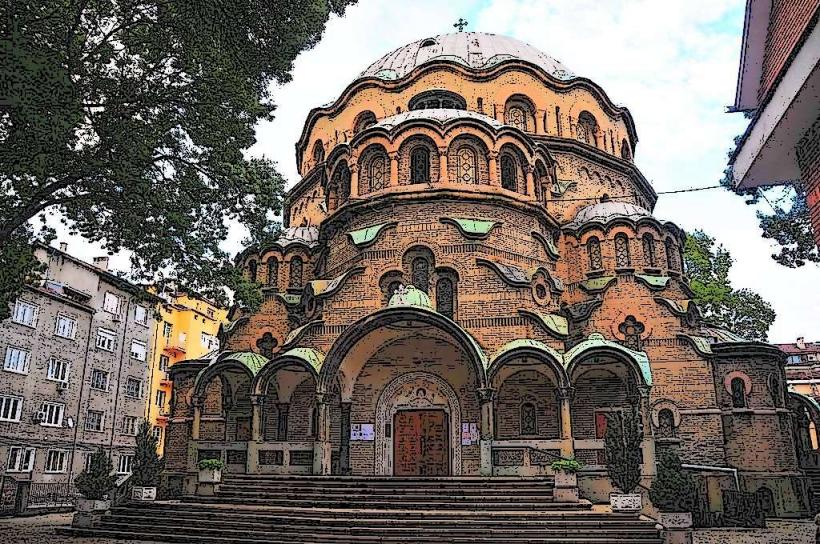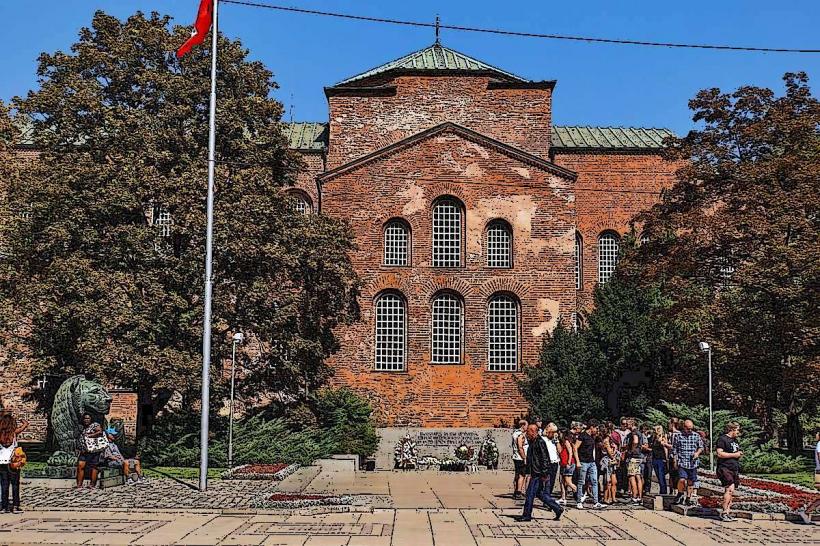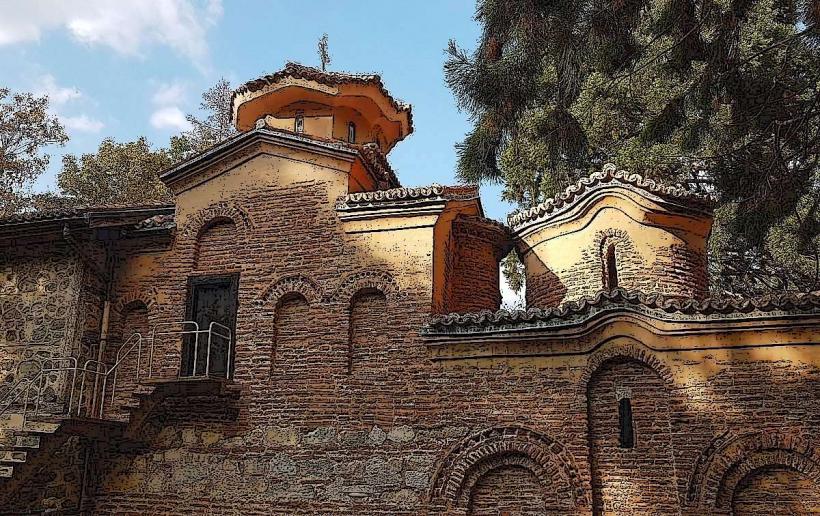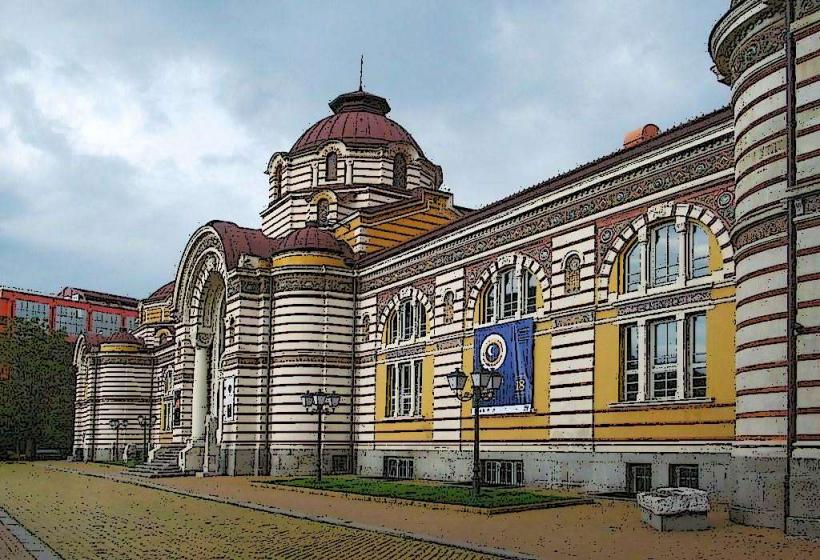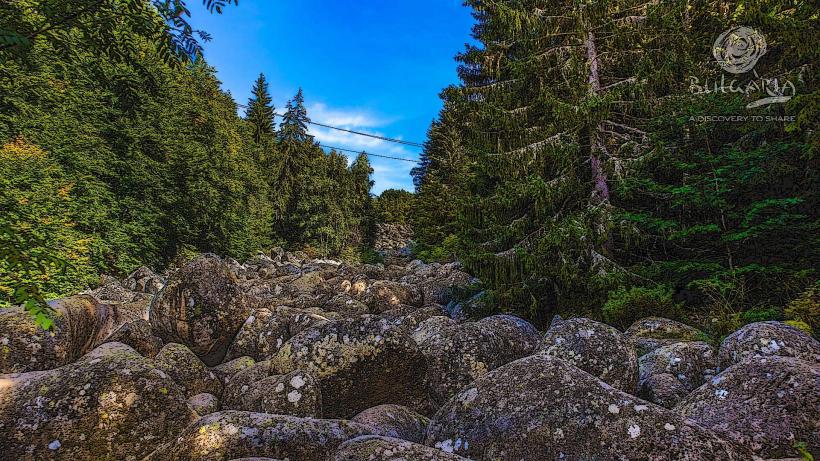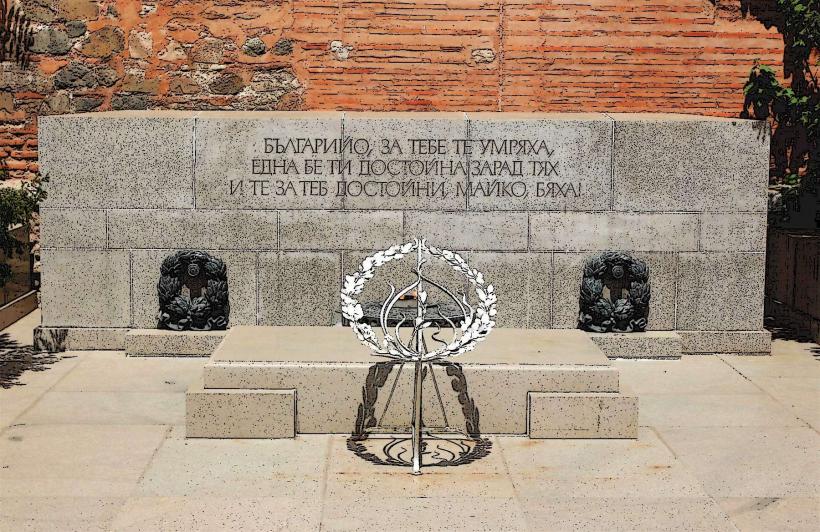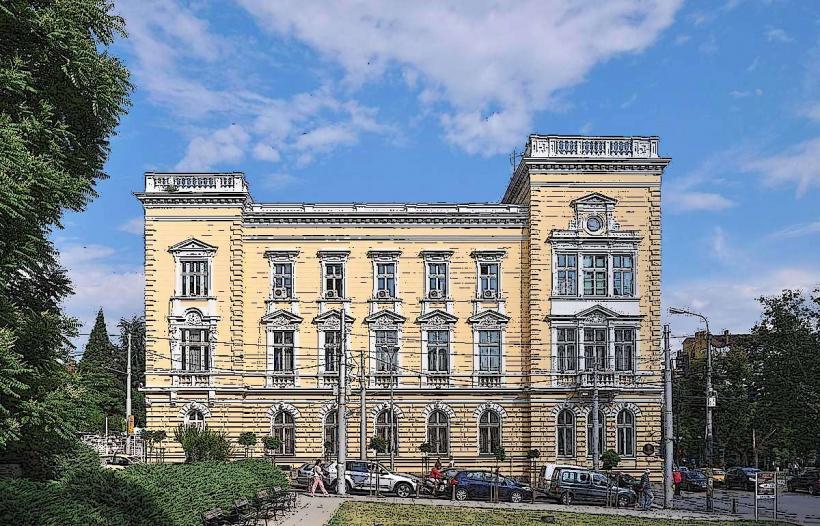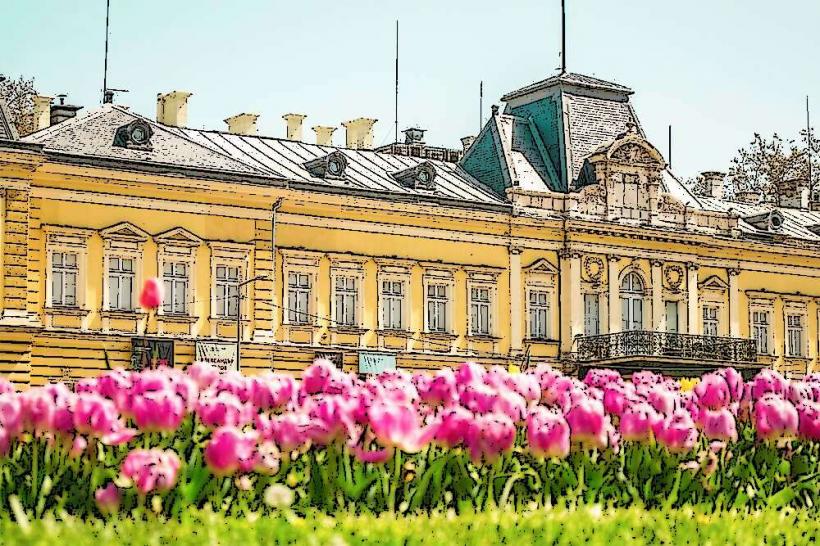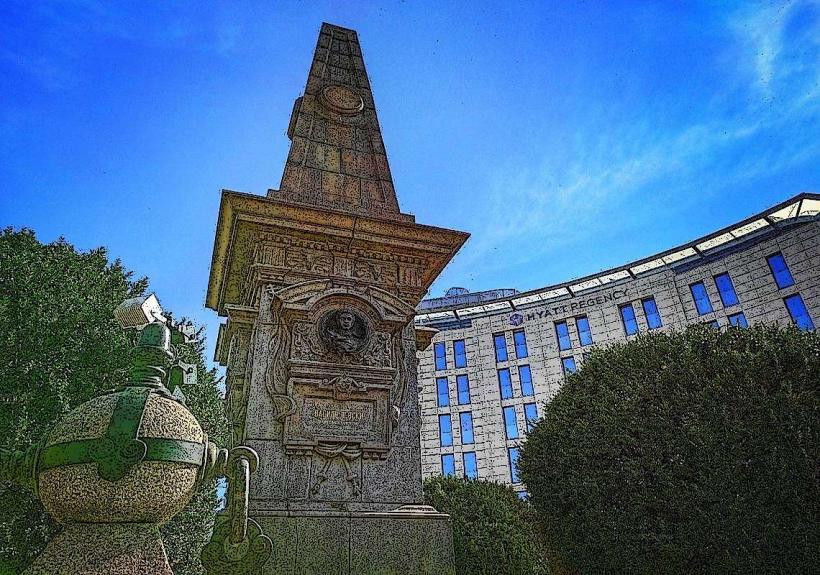Information
Landmark: Sofia SynagogueCity: Sofia
Country: Bulgaria
Continent: Europe
The Sofia Synagogue, officially known as the "Sofia Central Synagogue" (Софийска Централна Синагога), is a prominent Jewish house of worship located in Sofia, Bulgaria. It is one of the largest synagogues in Europe and a significant landmark in the city, representing the rich cultural and religious heritage of the Jewish community in Bulgaria. Here’s a detailed overview of the Sofia Synagogue:
Overview
History: The Sofia Synagogue was built between 1905 and 1909, designed by the Austrian architect Friedrich Grünanger. It was constructed to serve the growing Jewish population in Sofia during that period. The synagogue was inaugurated in 1909 and has since played a central role in the spiritual life of the local Jewish community.
Architectural Style: The synagogue is characterized by a blend of Moorish Revival and Byzantine architectural styles. Its exterior features a grand facade with beautiful arched windows, intricate decorative elements, and a striking dome, which is topped by a golden star of David.
Key Features
Interior Design: The interior of the Sofia Synagogue is equally impressive, adorned with elaborate decorations, colorful stained glass windows, and ornate chandeliers. The ceiling features beautiful murals and intricate woodwork, creating a serene and welcoming atmosphere for worshippers.
Main Hall: The main prayer hall can accommodate around 1,300 worshippers. It is notable for its large central chandelier and a beautifully crafted bimah (the platform from which the Torah is read).
Museum of Jewish History: Attached to the synagogue is a small museum that showcases the history and culture of the Jewish community in Bulgaria. Exhibits include historical photographs, religious artifacts, and documents related to the Jewish experience in Bulgaria.
Cultural Significance
Jewish Community: The Sofia Synagogue is an important center for the Jewish community in Sofia, hosting regular prayers, religious ceremonies, and community events. It serves as a cultural hub for both the local Jewish population and visitors interested in learning about Jewish heritage.
Historical Resilience: The synagogue stands as a testament to the resilience of the Jewish community in Bulgaria, especially during challenging historical periods, including the Holocaust. Bulgaria is known for its relatively successful efforts to protect its Jewish population during World War II, with many Jews surviving due to the advocacy of local leaders.
Visitor Experience
Public Access: The Sofia Synagogue is open to visitors, providing opportunities for both worship and education. Guided tours are available, allowing visitors to learn about the synagogue's history, architecture, and the Jewish community in Bulgaria.
Cultural Events: The synagogue hosts various cultural events, lectures, and concerts, enriching the cultural landscape of Sofia and promoting interfaith dialogue.
Surrounding Area
Location: The Sofia Synagogue is located in the center of Sofia, near other significant cultural landmarks, including the Banya Bashi Mosque and the Sofia Central Mineral Baths. The area is vibrant, with cafes, shops, and parks.
Jewish Community Center: Nearby, the Jewish Community Center serves as a social and cultural space for the local Jewish population, offering various programs and services.
Conclusion
The Sofia Synagogue is not only an architectural gem but also a vital symbol of the Jewish heritage in Bulgaria. Its historical significance, beautiful design, and active role in the community make it a must-visit site for anyone exploring Sofia. Whether you are interested in history, architecture, or culture, the Sofia Synagogue offers a unique glimpse into the rich tapestry of Bulgaria's Jewish history and its enduring legacy.

